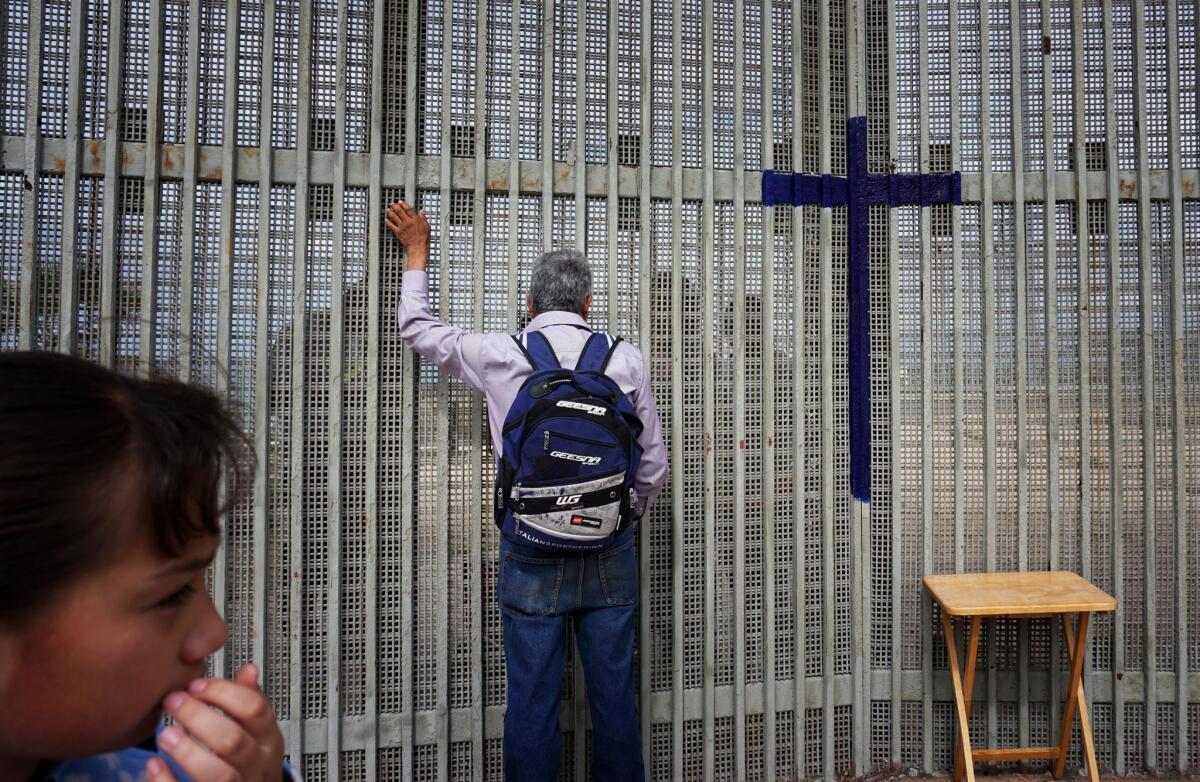Immigration officials reviewing order to stop family detentions at border

- Share via
Reporting from Washington — The Obama administration has not decided how to respond to a court ruling last week that ordered the government to stop detaining nearly 1,000 immigrant families as part of a policy meant to discourage other Central American families from illegally entering the United States.
Under the policy, the administration has detained families with children who were caught illegally crossing the Southwest border, rather than releasing them or letting them stay with other family members while courts considered their applications for asylum.
Marsha Catron, spokeswoman for the Homeland Security department, said Monday that officials are reviewing the court decision and have not decided whether to revise the policy, or to appeal the ruling by U.S. District Court Judge James E. Boasberg in Washington, D.C.
On Friday, Boasberg issued a preliminary injunction that barred immigration officers from detaining immigrants solely for the purpose of “deterring future immigration.”
Immigration officials greatly expanded the use of detention facilities for families last year when a surge in families with children, as well as unaccompanied minors, from El Salvador, Honduras and Nicaragua overwhelmed U.S. border agents.
A year ago, fewer than 100 spaces were available to hold children and teens who were caught crossing illegally with a parent. But more than 950 parents with children are held in U.S. detention centers today, according to Immigration and Customs Enforcement figures.
They include 509 parents and children at the Karnes County Residential Center in Karnes City, Texas; 359 parents and children at the South Texas Family Regional Center in Dilley, Texas; and 86 at the Berks County Family Shelter in Leesport, Penn.
Detention facilities for families are supposed to have special medical care available, access to social services and schoolteachers, as well as areas for children to play and private rooms to meet with lawyers.
Critics say the government should avoid locking up parents and children who enter the country illegally.
Many have relatives in the United States who can house children and their parents while their asylum cases are considered in court, and can pay a financial bond or provide other assurances that the families will appear for scheduled hearings.
“You can’t lock up people in order to send a message to other people,” Judy Rabinovitz, deputy director of American Civil Liberties Union’s Immigrants Rights Project, said in a telephone interview from New York. “I hope they would use this as an opportunity to rethink their policy,” she said.
Follow me on Twitter @ByBrianBennett
More to Read
Sign up for Essential California
The most important California stories and recommendations in your inbox every morning.
You may occasionally receive promotional content from the Los Angeles Times.














